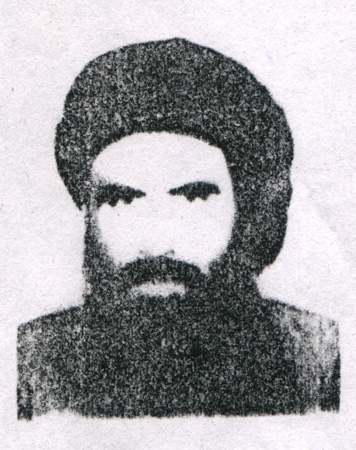
How fundamentalism is formed and nourished (Part Two)
Reading time: (Number of words: )
Beyond the borders of Afghanistan in the south and east, on the other side in Pakistan, the inhabitants are from ethnic Pashtun tribes and as a result of ethnic solidarity the border between Afghanistan and Pakistan is freezone for ethnic Pashtuns to smuggle weapons, people, and opium with impunity. They can also move freely across the border of both countries when they want and settle freely. The openness of the border helps the tribes of the ethnic Pashtun and promotes electoral fraud, the import and export of fundamentalists and terrorists and weapons and drugs to either country as an ongoing free trade. In this case the majority of the Pashtuns in the southern and eastern provinces have two national identity cards; an Afghan one and a Pakistani one, thus they can easily vote on both sides of the border and can effect the balance of power through electoral fraud in their favor. Having two national identity cards is one of the reasons that make the southern and eastern Pashtuns disloyal to Afghanistan, as many members of the other ethnic groups within Afghanistan rightly claim.
In spite of central government’s enormous fiscal allocations to the southern and eastern provinces, the outcomes have always been negligent. For example, the bias against provinces like Daikundi and Bamyan, (populated by Hazara peoples) means when the Karzai government allocates enormous financial support for the building of schools and hospitals in the southern and eastern provinces the extremists burn and destroy them, a complete waste of foreign aid on these provinces where a large number of fundamentalists exist. Instead, in other provinces where the people demand schools they are not allocated funds for they are not Pashtuns.
It does not mean these provinces should not receive reconstruction funds, but the inefficient way of dispersing funding to these provinces is a waste of time, energy and money. The government does not have civil education and literacy programs for these areas that could help change their mentality and lifestyle. Their mentality can only be changed through the positive promotion of successful role models in other provinces where the level of literacy is high. Unless the level of education grows in these provinces, any kind of investment can be considered futile.
The Karzai regime however, deliberately promotes the ideology of “Talibanism” among the people in general. Releasing Taliban war criminals from prisons, giving privileges to Taliban commanders are the incentives that encourage ordinary poor people to become part of the Taliban system itself.
As far as an entirely illiterate generation that does not know anything except killing, war and violence, this situation puts the entire country in a state of paucity, this sector of the community needs a long-term program to get accustomed to civilian life, not wartime, but the government has never had a long term program for them, instead it has used them in order to create chaos and uncertainty.The motive behind this strategy is to keep chaos and insecurity within the country in which a small group of people would have power in the form of ethnic sovreignty and govern the entire nation.
Evidence shows that the strength of tribalism and its inherent values has a direct link with the growth of terrorism in Afghanistan and since the Karzai regime has announced reconciliation with the Taliban based on Karzai’s own (Pashtun) tribal values opposition voices can rightly claim he has sacrificed the nation for his own tribal values. Karzai’s laws are based on “Pashtounwale” (Pashtun tribal law) and he has called them his “brothers”.
Political commentators say taking a weak position against the Taliban has weakened the pillars of the central government in Afghanistan; instead it has strengthened the position of the Taliban in that their unacceptable demands have worsened the security situation ever since this position was adopted.
Members of the Taliban who have not accepted demands from Karzai and his international allies do not yet have a clear idea of what it is they want exactly and what they will do if they will be given a voice in the government. This all began when the victims of the Taliban’s tyrannical rule during the late 1990s did not accept their return to power, indeed those victims want them to be prosecuted for the crimes they committed against humanity ; massacres and atrocities against the Afghan people themselves.
Like many other Pashtun rulers before him, Hamid Karzai does the same; he creates a division between the ethnic groups of Afghanistan by supporting the Pashtun fundamentalists as a kind of weapon and leverage for his own political aims. People say Karzai deliberately keeps the Pashtuns illiterate in order to win their obedience. That he intends to keep Pashtun fundamentalists as allies and use them as a trump card in the bigger game with the Western powers, but what has happened instead is the growth of enmity and ethnic clashes among the ethnic groups of Afghanistan. The Pashtun intellectuals abroad have noted this fact with due regard.
The libido of fundamentalism relies on chaos and disorder, when there is no chaos and disorder no fundamentalism can exist. This has been proved throughout time. When there is light, clarity and education there are less people to listen to the fundamentalists’ voice and the phenomena of fundamentalism disappears automatically.
Throughout the history of Pashtun rulers they have tried to paint a negative image of the other ethnic groups in comparison to the Pashtun tribes, in order to split the loyalties of all the ethnic groups of Afghanistan and govern by the “divide and rule” principle. A principle that rather than leading the country towards success instead nurtures conflicts, ethnic clashes and cultural retardation.

Poems for the Hazara
The Anthology of 125 Internationally Recognized Poets From 68 Countries Dedicated to the Hazara
Order Now








